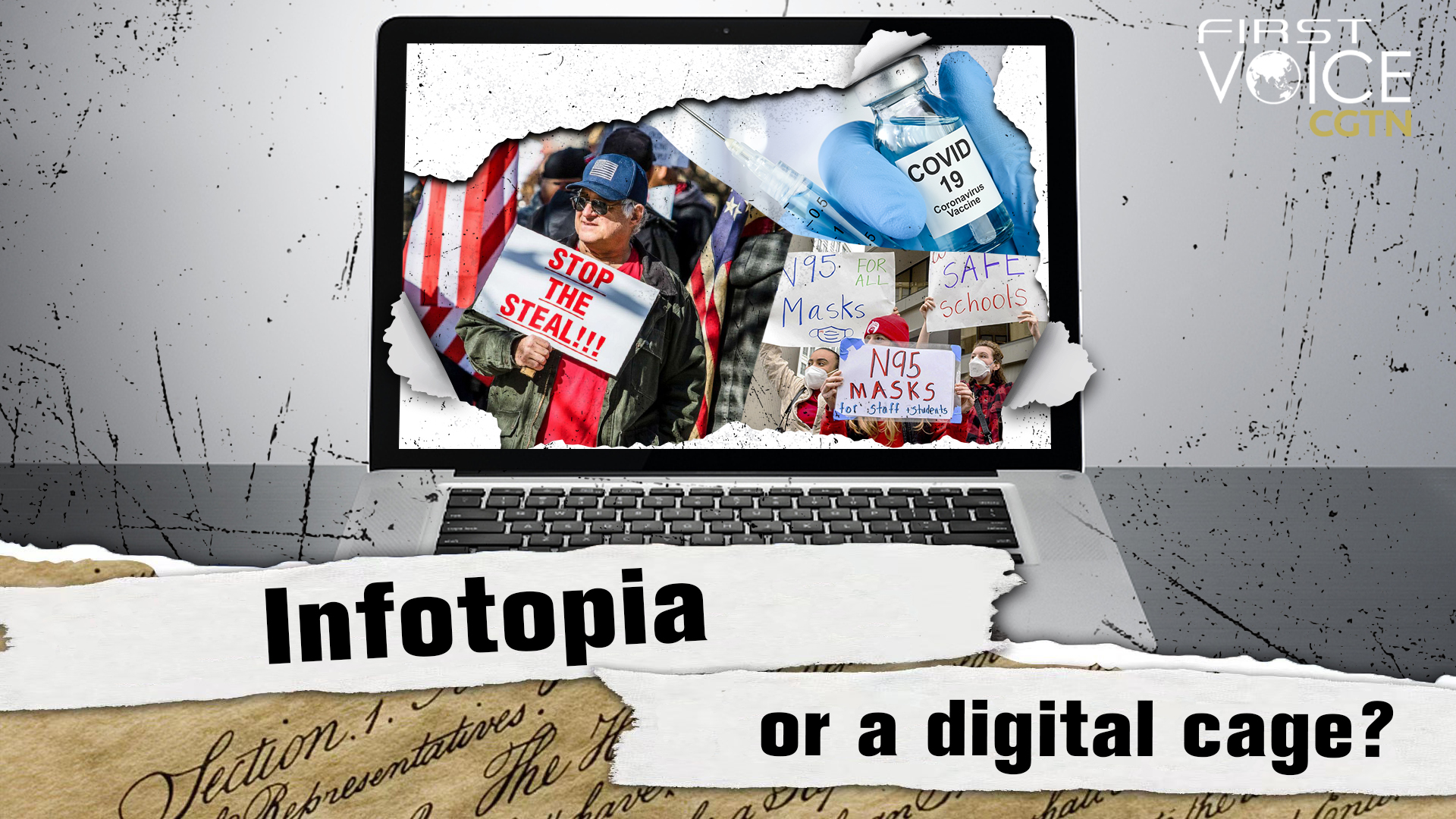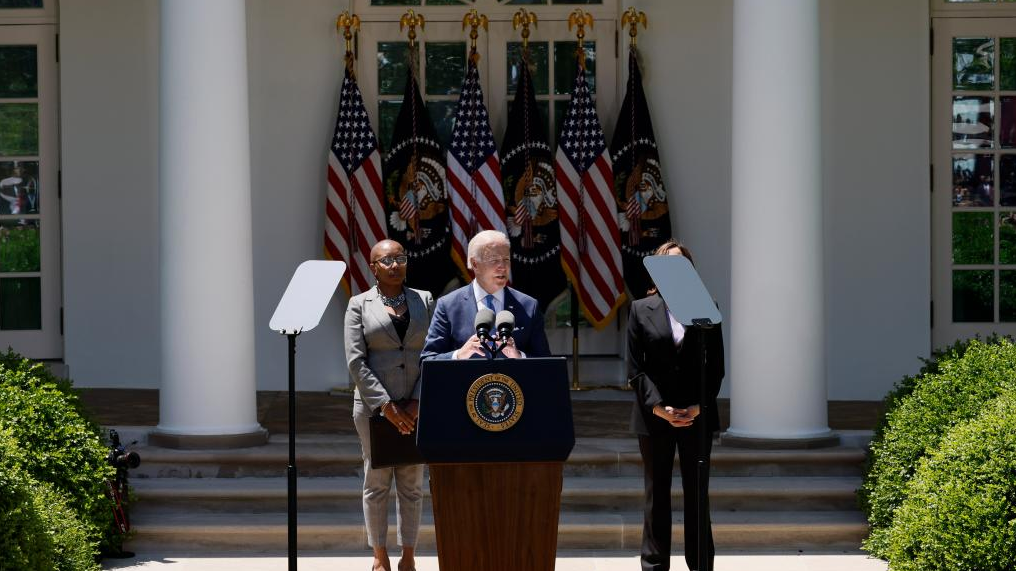
Editor's note: Wretched City upon a Hill is a 10-part series examining the clash between America's cherished beliefs about its democracy and the jarring truth about how the system fails in practice. The sixth essay is about the promise and danger of the Internet in America.
In today's rapidly evolving digital landscape, many people feel left behind when trying to navigate obstacles such as fake news, privacy breaches, and limited Internet access. These challenges have real-life consequences, impacting not only personal lives but also the very fabric of American democracy.
Race, geography and the digital divide
Internet access is an essential part of modern life. But in the U.S., a pioneer of the information superhighway, some 12 percent of households still lack any Internet access, and 42 million Americans are without stable high-speed broadband.
The disparity in broadband coverage is closely tied to demographic, economic, and geographic differences.
According to a survey conducted by the Pew Research Center in 2021, good Internet service remains a luxury, with only 57 percent of Americans making less than $30,000 per year having access, compared to 92 percent of households earning $75,000 or more.
In terms of race and ethnicity, 80 percent of White Americans enjoy reliable high-speed Internet access, compared with 71 percent of Black Americans and only 65 percent of Hispanic Americans.
Urban and suburban areas are much better off than rural areas, such as those in Mississippi, Arkansas, and Alabama, where there are many minorities and low-income levels. Poor neighborhoods across the South and the Rust Belt also experience difficulties in Internet access.
Although the Biden administration has launched the $45 billion "Internet for All" initiative that promises to provide every American with affordable and reliable high-speed Internet, the initiative has been challenging to implement for several reasons. Building Internet infrastructure can be hard in rural areas. Many rural residents do not know that they can apply for the government's Internet grant. The grant application involves filling in forms online, which is difficult for the elderly, children, and low-income people.
Therefore, the initiative is at best symbolic in bridging the digital divide between urban and rural areas, the rich and the poor, and different ethnic groups.

U.S. President Joe Biden (C) speaks during an event on reducing high-speed internet costs, at the White House in Washington, D.C., the United States, May 9, 2022. /Xinhua
U.S. President Joe Biden (C) speaks during an event on reducing high-speed internet costs, at the White House in Washington, D.C., the United States, May 9, 2022. /Xinhua
Information cocoons
Fake news is as old as American democracy. It grows with partisanship and cycles of populism. The switch from print media to digital media has facilitated the easy reproduction and wide dissemination of fake news. Some fake news websites not only have names quite similar to those of regular newspapers, but also contain useful features such as weather forecasts, making it difficult for users to tell the real from the fake.
According to a Statista survey in 2022, only 26 percent of the respondents were confident in identifying fake news, and as many as 67 percent believed that fake news has caused a great deal of confusion. Since fake news is also more likely to grab people's attention, it creates greater user stickiness and far more clicks, which means good revenue from advertising.
Some writers who once worked for quality print media started writing fake news to make more (and easy) money. Producing fake news became a legitimate business, signaling the situation has gotten out of control.
With the help of big data and algorithms, social media platforms only feed information to users based on their interests and preferences, which deprives their right to know the truth, makes them closed to other information and completely wraps them into a one-sided, unaware "information cocoon."
In this way, people no longer have any interest in accessing diverse information and viewpoints valuable for evaluating issues concerning the general public. People cannot tell the difference between the truth and fake news. This lack of access to diverse information erodes democracy, distancing citizens from decision-making processes.
Privacy concerns in the Digital Age
The essence of the Fourth Amendment to the U.S. Constitution – that it prohibits unreasonable searches and seizures – has been constantly eroded since the Reagan administration allowed federal agencies to cooperate with the CIA to collect extensive information on U.S. citizens in the name of national security.
In the age of big data, the military, the police and intelligence agencies are extending such practices substantially into cyberspace. An anonymous whistleblower reported that at least four agencies within the U.S. Department of Defense collectively spent $3.5 million on a company's data-monitoring products to track an incredible amount of sensitive information, including the identities of citizens and the content they consume online, Gizmodo reported.
The company is also said to have provided similar services to the U.S. Cyber Command, the U.S. Army, the FBI, and U.S. Customs and Border Protection.
In addition, the government has secretly cooperated with tech giants such as Google and Facebook to obtain the search history database of Google users, and gather their interests, beliefs, opinions, values and even contacts into an information network to be used by the government.
Although the Supreme Court in 2018 ruled again that the government does not have the right to obtain citizens' personal information without a search warrant, some government agencies still don't consider "purchases" of information to require a warrant, pushing legal and moral boundaries.
Even though the federal government is doing everything possible to portray the U.S. as an information Utopia where all people have equal access to information, unimpeded use of information, and guaranteed protection of privacy, most people are trapped in the information cocoon created by tech giants, fake news, and government monitors.
The right to information can be an appealing slogan for politicians. But the right remains an abstraction, not a reality within the reach of many people.
(The author, Wang Congyue, is an associate research fellow at the Institute of American Studies, Chinese Academy of Social Sciences. If you want to contribute and have specific expertise, please contact us at opinions@cgtn.com. Follow @thouse_opinions on Twitter to discover the latest commentaries in the CGTN Opinion Section.)